The Armenian Weekly. The last few weeks have consumed every emotion in our human portfolio. In a tragic sense, we are feeling a new bond with our ancestors who experienced the horrors of atrocities, dispossession and the frustration of defeat. Yet if we follow their path, we must also try to emulate their courageous efforts to recover. The Armenian nation lives the reality of a majority diaspora and a minority homeland population as a result of several historical catastrophes. While this reality is both unique and challenging, it also represents a great opportunity. The same core instincts of entrepreneurialism and work ethnic that guided Armenians in the Highlands for centuries remain an integral part of the incredible success of Armenians in the general diaspora.
Since 1991, progress has been made in connecting the homeland and diaspora into a “nation.” We use this term frequently to describe our imagined unity, but the reality is that it has taken years for the corruption and trust factors to improve enough to build this oneness. Certainly great strides have been made with civil society, NGOs, education and economics, but our measure of success must be guided by what is required and not simply in terms of progress. In order for the dream of an integrated global Armenian nation centered around the homeland with the unwavering support of the diaspora to be realized, we must change our thinking— and perhaps our vision. Armenia must become a place where all Armenians are welcome, regardless of their citizenship status or place of origin. This means that the diaspora must not view Armenia as a heritage vacationland but as a place whose future we are vested in building. We have literally tens of thousands of successful Armenian businesspeople in all regions of the world. Why don’t we have hundreds of factories, startups and diverse means of employment in Armenia? What are the barriers to bringing that success to Armenia? We can all point to the progress that has been made, yet that is the wrong barometer.
National security requires that we develop critical technologies in Armenia that will safeguard the country and employ the population. This development cannot be limited to IT just because we have the required skills. We need to invest in additional skills necessary for success. If Armenia currently can only afford second rate military technology, then it needs to embark on a parallel path of development and procurement. We need to be honest and ask ourselves: with a pro-Western push by Pashinyan that carried no security guarantees from the west, why would Russia give us any more than enough to survive? Why would they not take advantage of Armenians to bring them back “in line”? There is a significant difference between bringing western values of economics, education and social affairs into Armenia (an important improvement) and moving the geopolitical alignment to the west while the west does not provide Armenia with any real security. This is one of the challenges facing the diaspora. It is natural for us to advocate for the political alignment between Armenia and our host countries, but it may be not in Armenia’s interest if the support is limited. It is difficult to accept, but we may have become another in the examples of Georgia and the Ukraine that lost territory because of attempted geopolitical realignment.
There is nothing more painful than losing territory. We have experienced this but apparently did not politically internalize it. Artsakh was the first territorial liberation after losing it earlier along with Nakhichevan, Ardahan, Kars, Javakhli and the western highlands. We must work within our geographic neighborhood and view our self-interests in that context. All wars with Russia are proxy in nature. Their interests drive their actions. We thought we were fighting for Artsakh, while Turkey and Russia were playing regional geopolitics with Armenians. For us, the war was fought to defend our homes. For them, it was an opportunity to connect the dots of Artsakh with northeastern Syria. Russia was willing to sacrifice us to teach Armenia a lesson not to stray far from the nest and to secure its position in Syria with Turkish tradeoffs. Nothing is local in this world when regional forces are in play. We must never be mistaken on this matter again.
Read also
Our political thinking must be measured relative to geopolitical considerations both in the west as well as in Turkey, Iran and Russia. We should continue to encourage western influence when it is in Armenia’s interest without repeating the same mistakes. These dynamics require careful monitoring since they change. For example, a softening of the US/Iran relationship under a Biden administration could open windows currently not available. Patriotic rhetoric is admirable to motivate and inspire but can be dangerously naïve if it drives policy. Perhaps the most important aspect of the nine-point agreement concerns the transportation corridor through southern Armenia. This point has dangerous implications if it becomes imposed and one-sided. However, if the construction of the corridor is carried out in the context of respecting Armenia’s sovereignty and international law, it may have economic advantages. Effective negotiations are critical to secure Armenian interests. A wholesale rejection of the accord will probably not be tolerated by Russia and would eliminate the selective leverage we may still have. We need to pick our battles and push for change where we have the ability to impact and an opportunity to improve our position.
Armenia, as result of the material and psychological aspects of our defeat, is undergoing the stress of a political crisis. Many are asking whether Pashinyan will politically survive. I believe the more important question is whether our system of governance will survive. It is vitally important that the progress made in free market economics, anti-corruption, rule of law and other democratic institutions be maintained and strengthened. Armenia has a constitution and a commitment to rule of law. Even the Velvet Revolution operated with the Constitution as events were triggered by popular legal and peaceful protests followed by the resignation of Serzh Sargsyan. We must not forget the arduous but stable process that led to Pashinyan legally taking office with new parliamentary elections. If Armenia is to recover and thrive, then PM Pashinyan must search his soul as to whether his continued governance is in Armenia’s best interest.
There are few constitutional options: a vote of no confidence (unlikely unless the My Step parliamentary alliance collapses) or resignation. President Sarkissian has suggested a type of interim unity coalition until new elections can be held. It may be viewed as self-serving but still would constitutionally require the majority party to act or motivate a resignation. The call to resign from opponents must be constitutional and legal. Street riots and illegal tampering will wound the democratic institutions. We cannot return to the past. Instability increases that possibility.
The next month will be a critical test for Armenia. Pashinyan has announced that he intends to replace most of his ministers. If the directive from the top is the same, it will change nothing. Armenia needs dramatic change in its diplomatic strategies, international economic investments, relations with its diaspora, in addition to the immediate ability to manage the humanitarian and resettlement crisis with our brethren in Artsakh. If he is unwilling or unable to lead this type of change, then he should call upon his patriotic foundation and enable a change in leadership. This decision must be completed in the short term. Criticizing protesters and rationalizing defeat will not open the next chapter. Everyone must respect our democratic institutions. Otherwise what is the point of nation building?
This trauma should remind us in the diaspora that our psyche and material commitments to Armenia are not risk free. We should never immerse in the homeland seeking a guarantee. It is appropriate to do your homework but seeking a guarantee only leads to trust issues. Currently many of us are experiencing trust issues because of the failure of the outcome. It isn’t clear to me that a structure of a High Commissioner office communicating with a culturally and geographically diverse diaspora is anywhere near optimizing the potential of the relationship. It still feels like an organizational free for all. A loosely confederated umbrella structure will increase efficiency, improve decision-making and direct resources where they are most needed. We must “invest” in Armenia like a marriage…for better or worse. Who are we to back away…even if ever so slightly…because we are upset with Pashinyan, etc. We cannot abandon the people of Artsakh and Armenia. This is how democracy works. There should be protests but within the rule of law. We should not back away if the outcome is disappointing. With a love for Armenia, it should increase our resolve. The government and the diaspora need to expand the vision of “oneness” with a direct vested interest in the prosperity of Armenia without the fear from Armenia that the diaspora will have too much remote influence. The door should be wide open in a new model of the global Armenia nation.
In the interim, we have noticed how the All Haiastan/Armenia Fund has slowed in its receipts. This must change, and we will have a very visible opportunity during the Thanksgiving telethon this week. Other organizations such as the AGBU and the Armenian Relief Society (ARS) are moving quickly on refugee resettlement sponsorships, while the Armenian government announced a cash payment to all refugees of 300,000 AMD (over $600 US) from the All Haiastan Fund. It is important to mourn and reflect. Part of the healing process is to participate. There are endless short term, intermediate and long term options. Our resiliency as a nation is historic, but we must display the ability to learn from our mistakes. By driving necessary change, we are focusing on what we can control. Rationalizing our current situation as victims will only limit the strategic opportunities we must embrace to build a better future.
Stepan Piligian
Photo: Diaspora High Commissioner’s Office, October 9, 2020


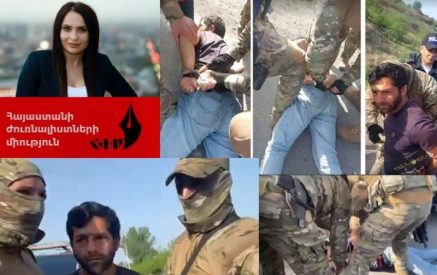









































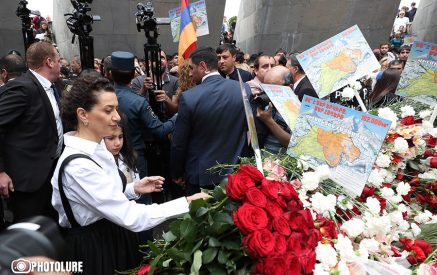
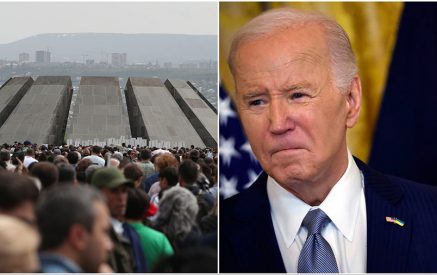
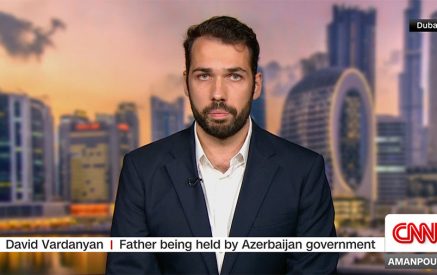
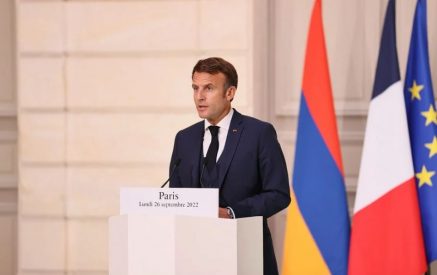
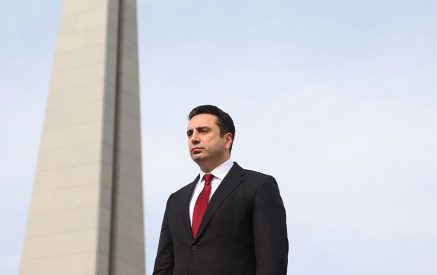
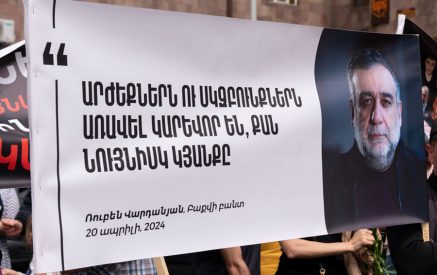
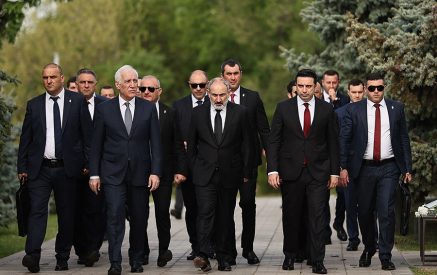
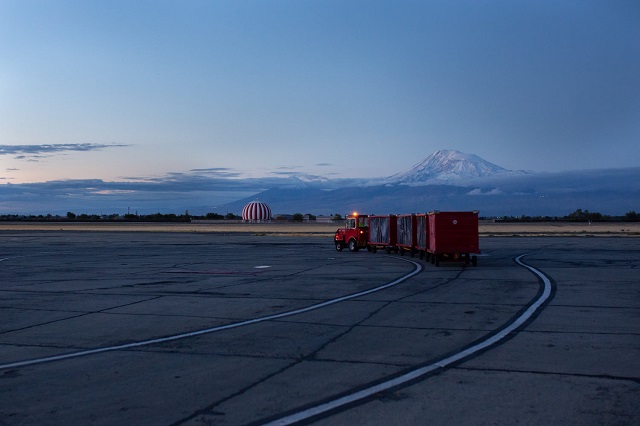
Great article. I wish diasporan Armenians can continue to support but it has to be a two-way street and some changes need to happen immediately within Armenia as a show of good faith.
For the moment, I can’t in good conscience donate or invest more in Armenia until: 1) Mr. Pashinyan resigns and 2) Measures are put in place to prevent any future leaders having unrestricted powers to give away large portions of land or property indiscriminately without consultation. Such measures have to include amendments to the constitution which institute strict term limits (e.g. 10 years max) for all members of parliament including the prime minister. Also Articles 205 and 208 of the constitution at least should be revised to curtail the powers given to the Prime Minister, under martial law, to make changes of the territory of the Republic of Armenia without a proper referendum.
I’m sorry, without the above changes, there are no guarantees on who will take over next and we can’t always just hope that a perfect leader will emerge and will not give away further lands 10 years from now.